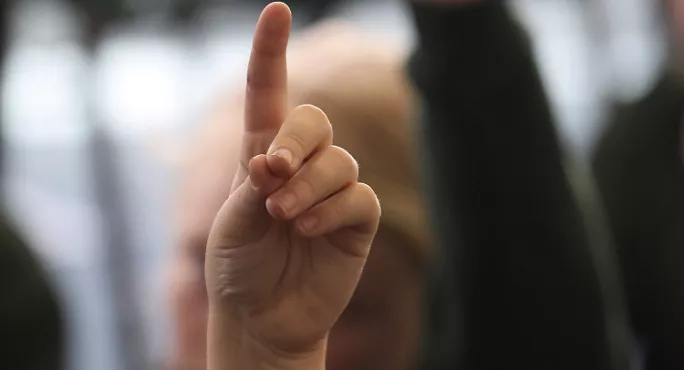When we talk about transition, we often think of the big one: the move between primary and secondary school. But our children make transitions every year and they need support with each one.
Moving up days are common within primary schools, as is the practice of moving classes up in June to settle students into their new classrooms ready for the next year. The question is: what should you do with your new class during this period? Here are a few tried and tested ideas.
Make bookmarks
These are easy to prepare, useful and can reveal something about each child. Cut strips out of card then ask the children to put their name on one side and pictures to represent their interests on the other. These can then be laminated to serve as place markers on the first day and be used in class for the next year.
A letter to your future self
A piece of writing can provide an initial assessment of where children are at with their writing and so can help you to start planning focus groups and prioritise teaching for the next year. Ask students to write a letter to themselves to be opened at the end of the next academic year, reflecting on their favourite lessons and personal targets. After you read them, pop the letters into envelopes and store them ready for opening in 12 months' time.
Get them involved in planning
We created our key stage 2 curriculum map in such a way that all key areas of learning are covered with room to spare for classes to discuss and vote on ideas for their own topics each moving up day. Observing them debate ideas gives an insight into their personalities and behaviour.
The children then help to create an overview of the learning areas and English links, which can be included in their topic. If you can’t facilitate this, ask them for ideas about the topic they will be doing in September or get them to vote on a class novel for the year.
Personality artwork
There are various formats that artwork representing a student’s personality can take, from silhouette art to daydream bubbles. Giving the children a chance to do some artwork representing who they are will reveal a lot about them and create an instant display ready to welcome them into class at the start of the academic year.
Problem-solving games
Games in which children have to collaborate to solve a problem are great for bringing together new groups of children. Ideas for this include: children joining hands in a circle and passing a hula-hoop around without letting go; getting the whole class across the playground using only a couple of small mats; or building the tallest tower from spaghetti and marshmallows. Activities like these will reveal how they communicate and cooperate – vital ingredients for classroom harmony.
Setting rules
Letting children know the expectations for behaviour, presentation of work and homework early leads to a smoother transition. If you’re feeling brave, let the children help to set their own. Get them to mind-map the ingredients of a successful school year, first individually, then in pairs. Finally, as a class, create a "classroom contract" for the children to sign.
Remember that this is also an important time for parents. Establishing early and clear communication with parents about what their children will be learning and the expectations of them via email, newsletter or a meeting can also smooth the transition.
Happy transition and enjoy your new class!
Rachel Lopiccolo is a Year 5 teacher and English and history subject leader at Waddington and West Bradford CE Primary School, Lancashire




